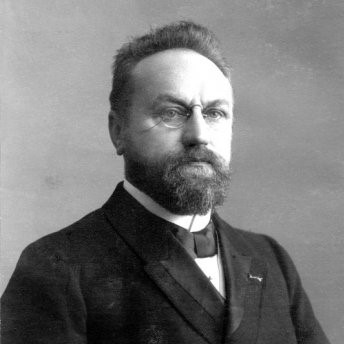Historic Reformed and Presbyterian churches typically do not serve the Lord’s Supper to young children. There are good biblical, theological, and practical reasons for this. I appreciate Herman Bavinck’s discussion of this topic, which sounds like other Reformed teachers’ explanations of why we don’t allow young children to take the bread and wine of communion. In the following section, Bavinck is answering some objections of those who wish to serve communion to young children.
(1) In the Old Testament there was a great difference between circumcision and the Passover. Circumcision was prescribed for all children of the male sex, but the Passover feast was celebrated, not immediately at its institution but later in Palestine, near the temple at Jerusalem. Very young children were therefore automatically excluded.
(2) Similarly there is a great difference between baptism and the Lord’s Supper. Baptism is the sacrament [that signifies and seals] regeneration, a sacrament in which a human is passive; the Lord’s Supper is the sacrament of maturation in communion with Christ, the formation of the spiritual life, and presupposes conscious and active conduct on the part of those who receive it.
(3) Christ instituted the Lord’s Supper in the midst of his disciples, saying to them all, “Take, eat and drink.” It presupposes that they took the bread and wine from his hand. And Paul writes that the church of Corinth came together to eat, and he leaves no other impression than that only self-conscious adult persons took part in the Supper.
(4) In 1 Cor. 11:26–29 Paul specifically insists that people should examine themselves before celebrating the Lord’s Supper in order to be able to discern the body of the Lord and not eat and drink unworthily. This demand is very general, addressed to all participants in the Lord’s Supper, and therefore automatically excludes the children.
(5) Withholding the Lord’s Supper from the children does not deprive them of any benefit of the covenant of grace. This would be the case if they were excluded from baptism. For no one can do this except those who believe that children are outside the covenant of grace. But things are different with the Lord’s Supper. Those who administer baptism to children but not the Lord’s Supper acknowledge that they are in the covenant and share in all its benefits. They merely withhold from them a particular manner in which the same benefits are signed and sealed, since this manner is not suited to their age. The Lord’s Supper, after all, does not confer a single benefit that is not by faith granted through the Word and through baptism.
Herman Bavinck, ed. John Bolt, and John Vriend, Reformed Dogmatics: Holy Spirit, Church, and New Creation, vol. 4 (Grand Rapids, MI: Baker Academic, 2008), 583–584.
Article was originally published here.

